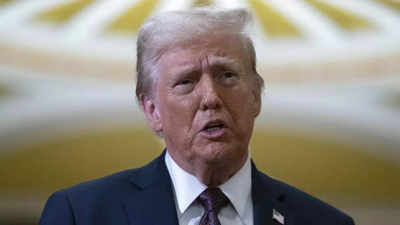A recent poll conducted by the European Council on Foreign Relations across 24 nations indicated that the return of President-elect Donald Trump to the White House is being welcomed more by US’ traditional opponents rather than its longstanding allies.
The ECFR survey reveals a mixed global response, with many nations welcoming another Trump term, believing he could resolve international conflicts. However, Europeans and South Koreans express concern that his leadership might diminish the influence of Western geopolitical alliance.
The study reveals a growing divide between Western democratic nations and the United States, while simultaneously revealing aspirations from non-allied countries to assume more prominent roles in international affairs.
The survey highlights particularly low confidence in the UK, historically recognised for its close ties with the United States. British respondents showed minimal optimism regarding Trump’s potential impact on their national security, with merely 15 per cent expressing positive sentiment, while 54 per cent indicated negative views.
British polling revealed a mere 15 percent approval for Trump’s presidency, while half of the UK population identified themselves as staunch opponents.
Additionally, South Korean citizens highlighted significant concern, with 67 percent expressing negative views about how Trump’s leadership would affect their nation’s security.
Interestingly, nations traditionally viewed as challengers – China, Saudi Arabia and Russia – showed positive attitudes towards future US relations under Trump’s administration.
Meanwhile, India emerged as the strongest supporter, with 75 percent classified as “Trump Welcomers” and 82 percent expressing confidence in his ability to promote global peace.
The ECFR defined “Trump Welcomers” as individuals who anticipate positive outcomes for both global peace and American prosperity under his leadership while “Never Trumpers” represented those expecting negative consequences on both fronts.
The remaining categories included “Peace Seekers” who, despite concerns about domestic impact, anticipated global stability; “Conflicted” individuals who foresaw benefits for America but global challenges; and “Uncertain” respondents who adopted a wait-and-see approach regarding both domestic and international implications.
The survey indicated that public opinion views the EU’s power as comparable to the US, with Europeans feeling self-sufficient in terms of military defence. Nevertheless, the United States remains NATO’s largest financial contributor, providing approximately 16 per cent of the alliance’s total budget in 2024.
Previously, Trump declared his intention to demand equal NATO contributions from member states, matching US levels. He also stated he would withhold military support from NATO members who failed to meet their financial obligations.
The prospect of Trump’s suggested Greenland acquisition poses potential complications for NATO, considering Denmark’s status as both a founding NATO member and EU participant.
Looking forward, the ECFR findings suggest widespread belief that Trump could facilitate global peace. Initially, he pledged to resolve the Russia-Ukraine conflict on day one, though this timeline has since been extended to his first 100 days.
Meanwhile, President Biden has announced that efforts to establish an Israel-Hamas ceasefire are approaching completion during his remaining time in office, with final details still under discussion.




